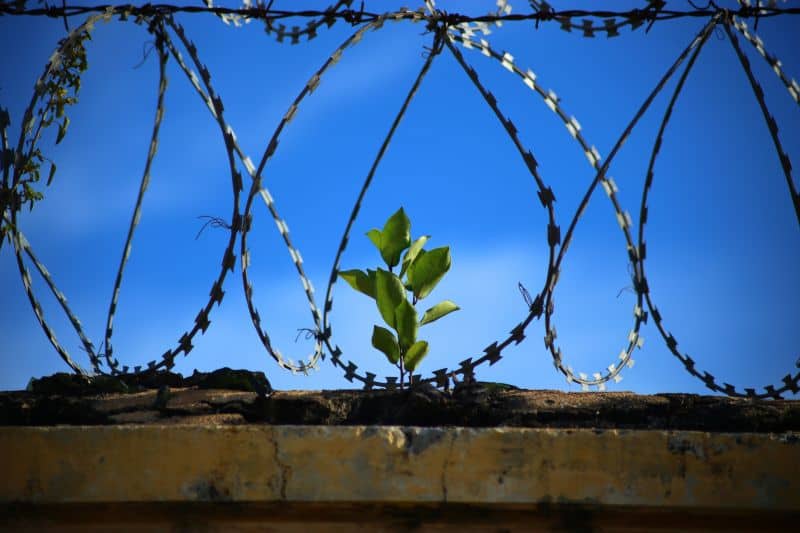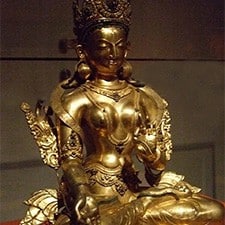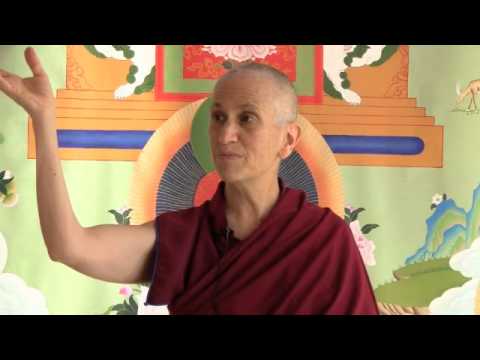Practicing in prison
By A. R.

This past Tuesday at work I found myself engaged in complaining with Ronnie about guys who try to use us financially. When it was done, I felt sick, both mentally and in my stomach. I knew I was wrong for doing it and beat myself up for it.
The next day I was quiet, and Ronnie asked if I was okay. During the morning break, I explained to him that complaining does not benefit anyone. I told him that in Dharma, right speech includes refraining from harsh, slanderous, and frivolous speech. And I was guilty of all that. He understood and thought I made a valid point.
You’ve written before about complaining. I remember in one book you described how we feel justified and vindicated when someone acknowledges and agrees with our ridicule of others. It is true. But now that I understand how wasteful and harmful that speech is, I feel sick when I do it. Step by step I will become better with my speech
**
I still experience anger, but a huge difference is that I’m now aware of it and quickly regret the feeling. In discussing verse 31, “Avoiding Hypocrisy” in The 37 Practices of Bodhisattvas, you point out something that I never gave thought to or considered. I’m so concerned with freeing others from their own suffering, so concerned with being a bodhisattva and a Buddha, that I didn’t even see that I must correct my own errors before being an example of compassion and wisdom for others. Being honest with myself, I am a Mickey Mouse spurious bodhisattva. I need to see that, to look in the mirror at the dirt on my face instead of pointing at others and trying to help clean others. How can I help them clean when I’m dirty myself?
**
Sometimes I experience attachment to praise, honor, and approval. It is odd because when I happen to be meditating or reading something beneficial, if a female officer happens to pass by my cell, in that moment I feel like I’m on a pedestal, a throne, a high and comfortable chair. I feel like I am somehow better than the other people imprisoned with me. My mind is saying, “Look at me. I am different. I don’t act like other incarcerated people.” During those moments I am aware what is happening. Sometimes I wish I had sensory impairments just to be free from attachment to praise and honor. Please give me some pointers to correct this.
**
Sometimes I feel like I don’t need to study the Dharma until something goes wrong. But that is foolish. It takes exercise daily so that those bad feelings won’t begin in the first place.
**
You spoke about visualizing the same scenario with different outcomes due to our choosing a variety of possible actions. Just today I did something that reflects this. At this camp, we are not allowed to sit just anywhere in the chow hall. Each table seats four and whoever we are near while waiting in line for a tray of food, that is who we sit with. Nobody likes to sit at the end tables in the chow hall, especially the seats with the back toward the oncoming people. Some guys will intentionally go further back in the line just so they don’t sit at an end table.
Today I could see that Teddy hesitated when walking with his tray. His assigned seat would have been at the end table with his back toward the traffic. I rushed forward and told him, “I got it, Teddy.” In that moment I had compassion for him and thought to myself, “I don’t have enemies here. But even if I am stabbed, this body should not be clung to.”
When I sat down, an officer made Teddy and me switch because he had seen that Teddy was in front of me. Several guys cursed the officer but it would have spoiled my compassion if I had felt anger towards him. I quietly sat and prayed and enjoyed the meal.
Once in the past I hated sitting at the end table. I even scolded an officer and didn’t eat the meal because that particular day I didn’t want to sit at the end. That day I went back to the block feeling terrible about myself. I sat and thought things through and told myself, “From now on, I will be happy to sacrifice for others. I will embrace sitting at the end to calm others’ minds.”
Each table in the chow hall has a huge number painted in black right in the middle. Two weeks back, a person was stabbed while sitting and eating at table 26. The officers didn’t even allow all the blood to be cleaned up. They didn’t want the feeding schedule to slow down. When I walked by the table and saw the pool of blood on the table and on the floor, I was saddened. I was sad for the guy who got harmed and for the one who attacked him. It turned out it was one Crip who sliced and stabbed a fellow Crip. I meditated and prayed for these men to be freed of such heavy karma. I reflected on my own mind. How I have compassion, yet there are still remnants of extreme anger within my own mind. I think I try to change too fast. I want to be free now from anger, greed, and ignorance. I have to remind myself that it takes time and practice, practice, practice.
Incarcerated people
Many incarcerated people from all over the United States correspond with Venerable Thubten Chodron and monastics from Sravasti Abbey. They offer great insights into how they are applying the Dharma and striving to be of benefit to themselves and others in even the most difficult of situations.


